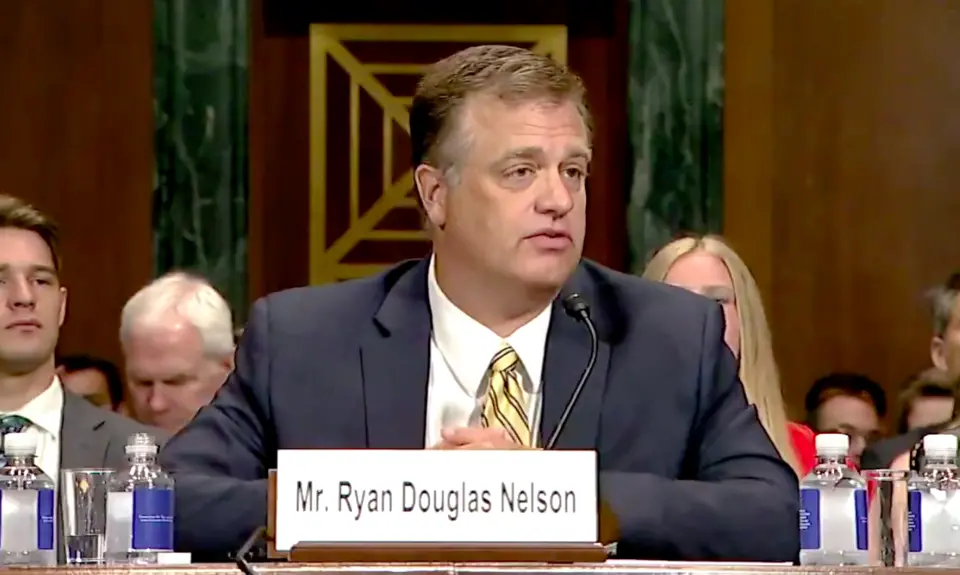“Confirmed Judges, Confirmed Fears” is a blog series documenting the harmful impact of President Trump’s judges on Americans’ rights and liberties. Cases in the series can be found by issue and by judge at this link.
Trump Ninth Circuit judge Ryan Nelson wrote the opinion and cast the deciding vote to reverse a district court injunction that blocked two Trump Administration rules making it easier to disseminate blueprints for 3-D and “ghost” guns. It is hoped that the Biden Administration will issue new tougher rules on the subject soon, though their fate remains uncertain. The April 2021 ruling was in State of Washington v. United Stated Department of State.
A serious issue raising gun safety concerns is the potential ability to evade restrictions on sale of guns by using the internet to transmit blueprints for 3-D and “ghost” guns that can literally be manufactured or assembled using a printer or a kit. Some years ago, pursuant to federal law, the State Department placed such guns and blueprints on the U.S. Munitions List, which meant that they could not be exported or imported without a license. In a lawsuit in which the Fifth Circuit rejected a request for a preliminary injunction by a company called Defense Distributed against the inclusion of such items on the restricted list, the State Department argued as recently as 2016 that the “proliferation of this technology” could provide “terrorist and criminal organizations” with access to “dangerous firearms, “contribute to armed conflict and terrorist or criminal acts,” and “undermine global export control and non-proliferation.”
In 2018 under the Trump Administration, however, the federal government “abruptly changed course,” as Judge Robert Whaley later explained. Even though it had prevailed at the preliminary injunction stage, the government decided to settle with Defense Distributed and undertake rulemaking that would “remove” the company’s “3D gun files from the Munitions List” and allow “export” of the files that could lead to the “proliferation of untraceable ‘ghost guns’.” As Judge Whaley noted, this change presents a “serious threat to public safety,” since such guns have been linked to “multiple mass shootings” in the US. The Trump Administration proceeded to enact such rules removing 3-D gun files from the State Department Munitions List, and transferred jurisdiction to the Commerce Department that allowed export, and only then “publicly disclosed” the settlement with Defense Distributed.
22 states filed suit, challenging the removal of 3-D gun files and blueprints from the Munitions List, claiming that the government’s actions violated the Administrative Procedure Act and were arbitrary and capricious. Judge Richard Jones, who was nominated by President George W Bush, granted a preliminary injunction against the government and the Trump Justice Department appealed.
Trump judge Ryan Nelson wrote a 2-1 decision reversing the district court. He maintained that no court could review a State Department decision to add or remove an item to the Munitions List, based on a 1989 law that stated that the “designation” of items as “defense articles” on the list “shall not be subject to judicial review.” According to Nelson, the law applied to “both designations and undesignations,” as in this case.
Judge Whaley strongly dissented. Based on the language, structure, and history of the law, he explained, “a more plausible interpretation” of the law is that Congress “intended to treat designations and removals separately” and not prevent judicial review of decisions to remove items from the Munitions List. Since the government had not met the legal requirementg to show that it was “clear and convincing” that removals were not subject to judicial review, he continued, the district court had the authority to make its decision. And on the merits of the preliminary injunction, Whaley concluded, the history as recounted above shows the “arbitrariness and capriciousness” of the State Department’s final rule, and the district court decision should have been affirmed.
Although Trump judge Nelson’s harmful decision on 3-D guns remains in effect, the Biden Administration has announced that the Justice Department will propose new rules restricting 3-D printed guns by May 8. There is no way to tell how long it will take for such rules, or possible re-designation of 3-D plans by the State Department on the Munitions List, to become final and hopefully survive judicial review, and no way to tell how much proliferation of 3-D guns will occur in the meantime. This issue further underlines the importance of our fight for our courts.
